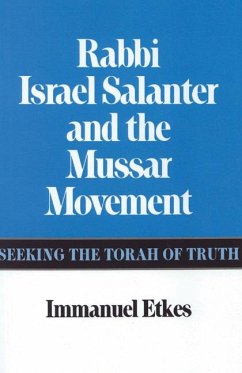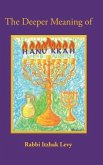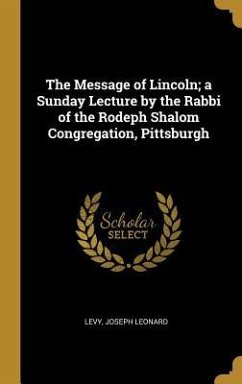Israel Salanter was one of the most original and influential Jewish leaders and thinkers of Eastern European Jewry in the modern period. This biography makes available to the English-speaking public - for the first time - a systematic discussion of his thought and deeds, which had a profound impact on traditional Judaism. One of Salanter's most striking innovations was the transformation of the issue of ethics from the domain of theology to the realm of psychology. Immanuel Etkes traces Salanter's unique view of Mussar doctrine, especially his introduction of modern psychology to the traditional understanding of personal ethical development. The author begins by tracing Salanter's predecessors - the Vilna Gaon, Rabbi Hayyim of Volozhin, and Rabbi Zundel of Salant, Rabbi Israel's teacher. He then places the Mussar movement within its historic and cultural context: on the Jewish scene, with Hasidism and the Haskalah; and on the Russian scene, with the dual pressures of political repression and the cultural lure of secular assimilation. One can see the establishment of the Mussar Movement as a reaction to the increased strength of the Haskalah movement and the secularization that came with it. In fact, Salanter is portrayed as one of the first leaders of Eastern Europe's Jewish Orthodoxy - orthodoxy in the sense of a traditional society gaining awareness of the threat against tradition, preparing to defend it. This struggle itself, however, often assumed a modern character, not unlike the phenomena it was combating. This characterization befits Salanter, who made use of modern methods, like psychology, in his struggle for the triumph of tradition. Etkes's notes make accessible some of thetechnical terms that may be unfamiliar to readers new to this chapter of Jewish history.
Hinweis: Dieser Artikel kann nur an eine deutsche Lieferadresse ausgeliefert werden.
Hinweis: Dieser Artikel kann nur an eine deutsche Lieferadresse ausgeliefert werden.








